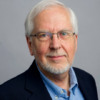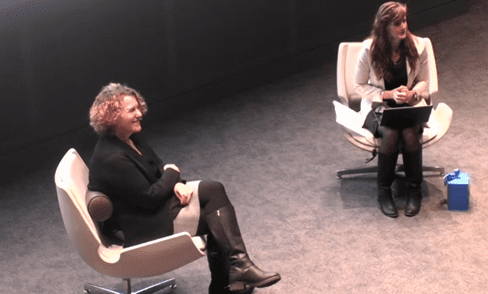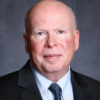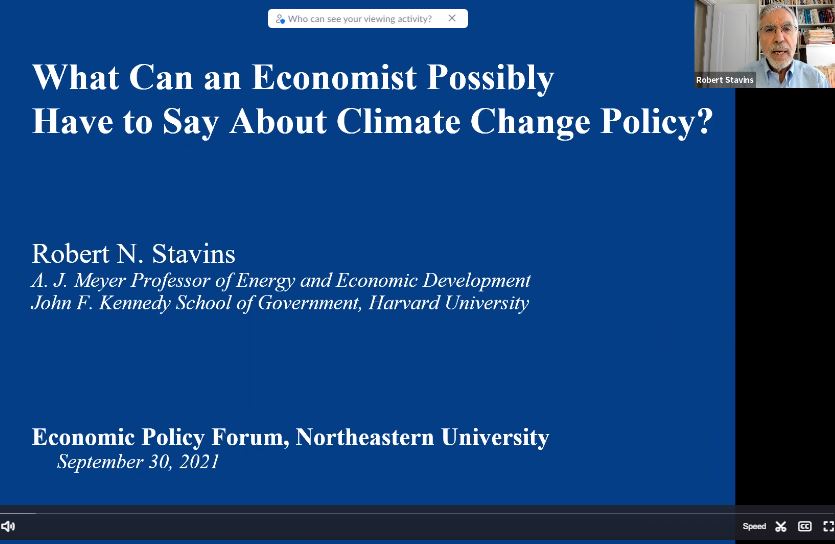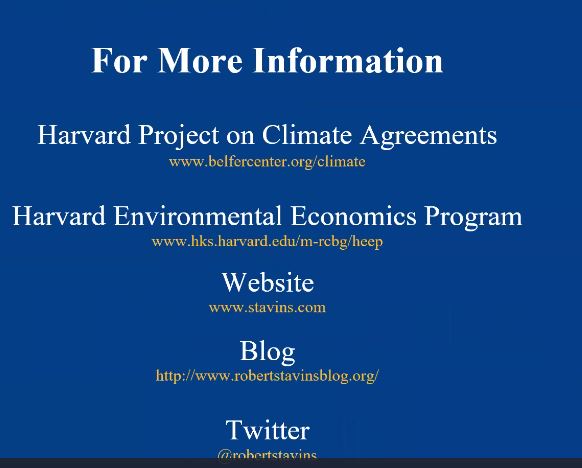Fall 2021 Economic Policy Forum
Economic Policy, (In)equality, and Economic Justice: Discussions with prominent policymakers and thinkers on critical economic questions
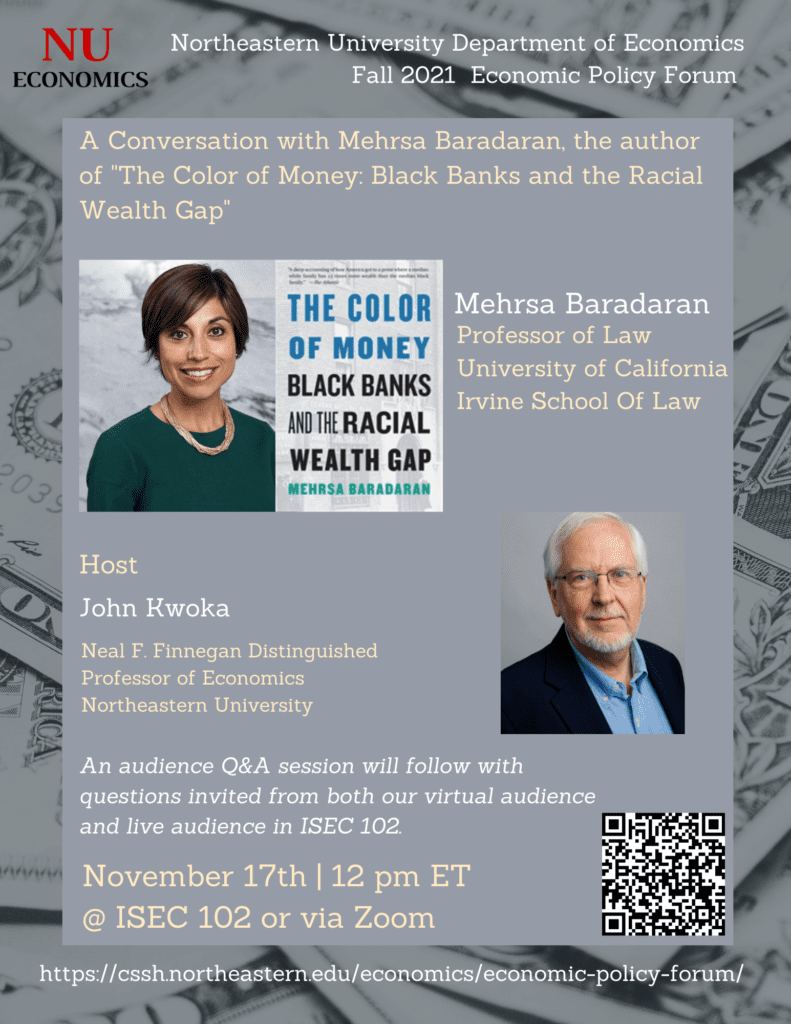
Mehrsa Baradaran
The Color of Money: The History and Creation of the Racial Wealth Gap
Link to Recording
Wednesday, November 17, 12:00 noon
ISEC 102 and via Zoom
The final forum of the semester was held Wednesday, November 17 at 12:00 pm ET and featured a discussion with Mehrsa Baradaran, author of The Color of Money: Black Banks and the Racial Wealth Gap and Professor John Kwoka in ISEC 102 and via zoom.
This forum was a truly hybrid event – Professor Baradaran was virtual, Professor Kwoka was in-person and the audience was both in-person and virtual.
Mehrsa Baradaran, Professor of Law at UCI Law discussed banking law, financial inclusion, and racial inequality. Professor Baradaran is a leading scholar on financial services law and has developed a number of policies to address U.S. economic inequality and the racial wealth gap. Her most recent book, The Color of Money: Black Banks and the Racial Wealth Gap, explores the history behind the racial wealth gap and the reasons why it has persisted for more than 150 years. Baradaran focuses on the role of Black banks as a means by which to understand how Black communities build wealth in a segregated economy.
Baradaran and her books have received significant national and international media coverage and have been featured in the New York Times, the Atlantic, Slate, American Banker, the Wall Street Journal and Financial Times; on National Public Radio’s “Marketplace,” C-SPAN’s “Washington Journal” and Public Broadcasting Service’s “NewsHour;” and as part of TEDxUGA. She has advised U.S. Senators and Congressmen on policy, testified before the U.S. Congress, and spoken at national and international forums like the U.S. Treasury and the World Bank.
Susan Dynarski
Understanding and Reducing Inequality in Education
Link to Recording
Wednesday, October 20, 12:00 noon
Susan Dynarski, Professor at Harvard’s Graduate School of Education, discussed inequality in education in-person in ISEC 102 on Wednesday, October 20 at 12:00 pm ET.
Susan Dynarski’s research focuses on understanding and reducing inequality in education, looking to assess the effects of charter schools, financial aid, postsecondary schooling, class size, and high school reforms on academic achievement, educational attainment, and long-term outcomes. Her work strives to make higher education more accessible — particularly for low-income and first-generation students — by lowering or removing barriers at multiple stages of college admissions, including by improving application processes and simplifying enrollment.
She is a contributing columnist for The New York Times. The Chronicle of Higher Education named her one of the “top ten influencers and agitators of 2015,” calling her “The Sensible Explainer.”
What Can an Economist Possibly Have to Say About Climate Change?
Robert Stavins
Link to recording
Thursday, September 30, 3:00 pm
Robert N. Stavins is a leading expert in environmental and natural resource economics. He has consulted to public, private, and governmental organizations, and has served as an expert in dozens of matters.
Robert N. Stavins is the A.J. Meyer Professor of Energy & Economic Development, Director of Graduate Studies for the Doctoral Programs in Public Policy at the Harvard Kennedy School. He is the Director of the Harvard Environmental Economics Program and the Harvard Project on Climate Agreements.
Professor Stavins is actively involved in advising public officials and government agencies on environmental policy. Professor Stavins was a member of the Energy and Environmental Markets Advisory Committee at the US Commodity Futures Trading Commission, and is a former chairman of the Environmental Economics Advisory Committee of the US Environmental Protection Agency’s Science Advisory Board. He has consulted to several presidential administrations, the US Congress, the US Agency for International Development, the World Bank, the United Nations, the National Academy of Sciences, state and national governments, environmental advocacy groups, private foundations, trade associations, and corporations.
Shillman 135 and also via Zoom
The series is organized by Profs. John Kwoka and William Dickens of the Department of Economics
Previous Forums
Spring 2021 “Economic Policy, (In)equality, and Economic Justice”
Building Better Jobs in an Age of Machines
April 6, 3:00 pm
MIT labor economist David Autor, co-chair of the Institute’s Task Force on the Work of the Future, discussed the initiative’s report, “The Work of the Future: Building Better Jobs in an Age of Intelligent Machines.”
David Autor is Ford Professor of Economics and associate head of the MIT Department of Economics. His scholarship explores the labor market impacts of technological change and globalization, earnings inequality, and disability insurance and labor supply.
Autor has received several awards for his scholarship, including the National Science Foundation Career Award; an Alfred P. Sloan Foundation Fellowship; and the Sherwin Rosen Prize for outstanding contributions in the field of labor economics—and for his teaching, including MIT’s James A. and Ruth Levitan Award for excellence in teaching; the Undergraduate Economic Association Teaching Award; and the Faculty Appreciation Award from the MIT Technology and Policy Program.
He was recognized by Bloomberg as one of the 50 people who defined global business in 2017.
Autor is a faculty research associate of the National Bureau of Economic Research and is also affiliated with the MIT School Effectiveness and Inequality Initiative, the Abdul Latif Jameel Poverty Action Lab, and the Institute for the Study of Labor. He is editor-in-chief of the Journal of Economic Perspectives. Autor received a BA in psychology from Tufts University and a PhD in public policy at Harvard University’s Kennedy School of Government.
Link to recording
Equitable growth, opportunity, and Federal Reserve policy
March 24, 3:00 pm
Mary C. Daly is the President and CEO of the Federal Reserve Bank of San Francisco. As a participant on the Federal Open Market Committee, she helps set American monetary policy that promotes a healthy and stable economy.
Since taking office in October 2018, Dr. Daly has committed to making the San Francisco Fed a more community-engaged bank that is transparent and responsive to the people it serves. She works to connect economic principles to real-world concerns and is a sought-after speaker on monetary policy, labor economics, and increasing diversity within the economics field.
Dr. Daly began her career with the San Francisco Fed in 1996 as an economist specializing in labor market dynamics and economic inequality. She went on to become the Bank’s Executive Vice President and Director of Research. She currently serves on advisory boards for the Center for First-generation Student Success and the Maxwell School of Citizenship and Public Affairs at Syracuse University. She has also served on the advisory boards of the Congressional Budget Office, the Social Security Administration, the Office of Rehabilitation Research and Training, the Institute of Medicine, and the Library of Congress.
Dr. Daly earned a bachelor’s degree from the University of Missouri-Kansas City, a master’s degree from the University of Illinois Urbana-Champaign and a Ph.D. from Syracuse University. She also completed a National Institute of Aging post-doctoral fellowship at Northwestern University.
Link to recording
Robert Triest, Northeastern University Department of Economics Professor and Chair
Fall 2020 “Economic Policy, (In)equality, and Economic Justice”
Markets, Governments, and the Response to Race, Recession, and the Pandemic
September 16, 3:00 pm
Joseph Stiglitz, University Professor at Columbia University, is the co-winner of the 2001 Nobel Memorial Prize, former chair of the President’s Council of Economic Advisers, and former Chief Economist of the World Bank. Known for his pioneering work on asymmetric information, Stiglitz’s work focuses on income distribution, risk, corporate governance, public policy, macroeconomics and globalization. He is the author of numerous books, and several bestsellers. His recent book People, Power, and Profits Progressive Capitalism for an Age of Discontent, offers an authoritative account of the dangers of unfettered markets and monied politics.
Link to recording
Unbound: How Inequality Constricts our Economy and What We Can Do about it.
September 30, 3:00 pm
Heather Boushey is the President & CEO and co-founder of the Washington Center for Equitable Growth, which was launched in 2013. She is one of the nation’s most influential voices on economic policy and a leading economist who focuses on the intersection between economic inequality, growth, and public policy. Her latest book, Unbound: How Economic Inequality Constricts Our Economy and What We Can Do About It (Harvard University Press), which was called “outstanding” and “piercing” by reviewers, was on the Financial Times list of best economics books of 2019. She is also the author of Finding Time: The Economics of Work-Life Conflict, and co-edited a volume of 22 essays about how to integrate inequality into economic thinking called After Piketty: The Agenda for Economics and Inequality.
Link to recording
The ARC of Justice
October 14, 3:00 pm
William A. Darity Jr. presented The ARC of Justice on reparations for black American descendants of U. S. slavery. William A. (“Sandy”) Darity Jr. is the Samuel DuBois Cook Professor of Public Policy, African and African American Studies, and Economics and the director of the Samuel DuBois Cook Center on Social Equity at Duke University. He has served as chair of the Department of African and African American Studies and was the founding director of the Research Network on Racial and Ethnic Inequality at Duke. His most recent book, coauthored with A. Kirsten Mullen, is From Here to Equality: Reparations for Black Americans in the Twenty-First Century (2020).
Spring 2020 “Capitalism, Competition, and (In)equality”
The first Spring speaker, Dani Rodrik, presented “Remaking Globalization” on February 12 from 5:00 – 6:30 p.m. at the Alumni Center as part of the Challenging the Liberal World Order Speaker Series sponsored by the NU Center for International Affairs and World Cultures. Dani Rodrik is the Ford Foundation Professor of International Political Economy at Harvard Kennedy School and has published widely in the areas of economic development, international economics, and political economy. His current research focuses on employment and economic growth, in both developing and advanced economies.
The Work of the Future:
Shaping Technology and Institutions
by David Autor
scheduled for March 12 was canceled due to Covid-19.
The talk by Joseph Stiglitz has been rescheduled for September 16, 2020 at 3:00 pm EST
Fall 2019 “Capitalism, Competition, and (In)equality”
Saving Capitalism: Should We Even Try?
- Wednesday, October 2
- 3:30pm-5:00pm
ISEC Auditorium Interdisciplinary Science and Engineering Complex
Robert Reich is the Carmel P. Friesen Professor of Public Policy at the University of California Berkeley.
Robert B. Reich has served in three national administrations, most recently as secretary of labor under President Bill Clinton. He also served on President-Elect Obama’s transition advisory board. He has written twelve books, including The Work of Nations, which has been translated into 22 languages; the best-sellers The Future of Success and Locked in the Cabinet, Supercapitalism, Aftershock and Beyond Outrage.
Professor Reich is co-founding editor of The American Prospect magazine. His commentaries can be heard weekly on public radio’s Marketplace . In 2003, Reich was awarded the prestigious Vaclav Havel Vision Foundation Prize, by the former Czech president, for his pioneering work in economic and social thought. In 2008, Time Magazine named him one of the ten most successful cabinet secretaries of the century. He received his B.A. from Dartmouth College, his M.A. from Oxford University where he was a Rhodes Scholar, and his J.D. from Yale Law School.
Re-Imagining Capitalism
- Thursday, October 24
- 3:45 p.m. – 5:15 p.m.
Cabral Center,
John D. O’Bryant African American Institute
Link to Slides.
Rebecca Henderson is the John and Natty McArthur University Professor at Harvard University, where she has a joint appointment at the Harvard Business School in the General Management and Strategy units. Professor Henderson is also a research fellow at the National Bureau of Economic Research. Her work explores how organizations respond to large-scale technological shifts, most recently in regard to energy and the environment. She teaches Reimagining Capitalism in the MBA Program.
From 1998 to 2009, Professor Henderson was the Eastman Kodak Professor of Management at the Sloan School of the Massachusetts Institute of Technology, where she ran the strategy group and taught courses in strategy, technology strategy, and sustainability. She received an undergraduate degree in mechanical engineering from MIT and a doctorate in business economics from Harvard.
Professor Henderson sits on the boards of Amgen and of IDEXX Laboratories, and she has worked with both members of the Fortune 100 and small, technology-orientated start-ups. She was retained by the U.S. Department of Justice in connection with the remedies phase of the Microsoft trial, and in 2001 she was named Teacher of the Year at the Sloan School. Her work has been published in a range of scholarly journals including Administrative Science Quarterly, The Quarterly Journal of Economics, Strategic Management Journal, Management Science, Research Policy, RAND Journal of Economics, and Organization Science.
Her most recent publication is Leading Sustainable Change: An Organizational Perspective, edited jointly with Ranjay Gulati and Michael Tushman, and published by the Oxford University Press.
Taming the Tech Giants
-
Tuesday, November 19
3:45 p.m. – 5:15 p.m.
Raytheon Amphitheater, Egan Research Center
Jason Furman is Professor of the Practice of Economic Policy at Harvard Kennedy School (HKS). He is also nonresident senior fellow at the Peterson Institute for International Economics. This followed eight years as a top economic adviser to President Obama, including serving as the 28th Chairman of the Council of Economic Advisers from August 2013 to January 2017, acting as both President Obama’s chief economist and a member of the cabinet. During this time Furman played a major role in most of the major economic policies of the Obama Administration.
Previously Furman held a variety of posts in public policy and research. In public policy, Furman worked at both the Council of Economic Advisers and National Economic Council during the Clinton administration and also at the World Bank. In research, Furman was a Director of the Hamilton Project and Senior Fellow at the Brookings Institution and also has served in visiting positions at various universities, including NYU’s Wagner Graduate School of Public Policy.
Professor Furman has conducted research in a wide range of areas, including fiscal policy, tax policy, health economics, Social Security, technology policy, and domestic and international macroeconomics. In addition to articles in scholarly journals and periodicals, Furman is the editor of two books on economic policy. Furman holds a Ph.D. in economics from Harvard University.
Fall 2017
Inequality in America: How Do We Achieve an Economy That Works for All
Jeffrey Frankel, James W. Harpel Professor of Capital Formation and Growth, Harvard University’s Kennedy School of Government
September 28
3:00pm-4:30pm
220 Shillman Hall
Health Policy in America: What the Future Holds
David M. Cutler,
Harvard College, Otto Eckstein Professor of Applied Economics
October 25
3:00pm-4:30pm
Conference Center
140 The Fenway
The Economic Outlook for the United States
Eric S. Rosengren
Boston Fed President and Chief Executive Officer
November 15
4:00pm-5:30pm
Cabral Center
